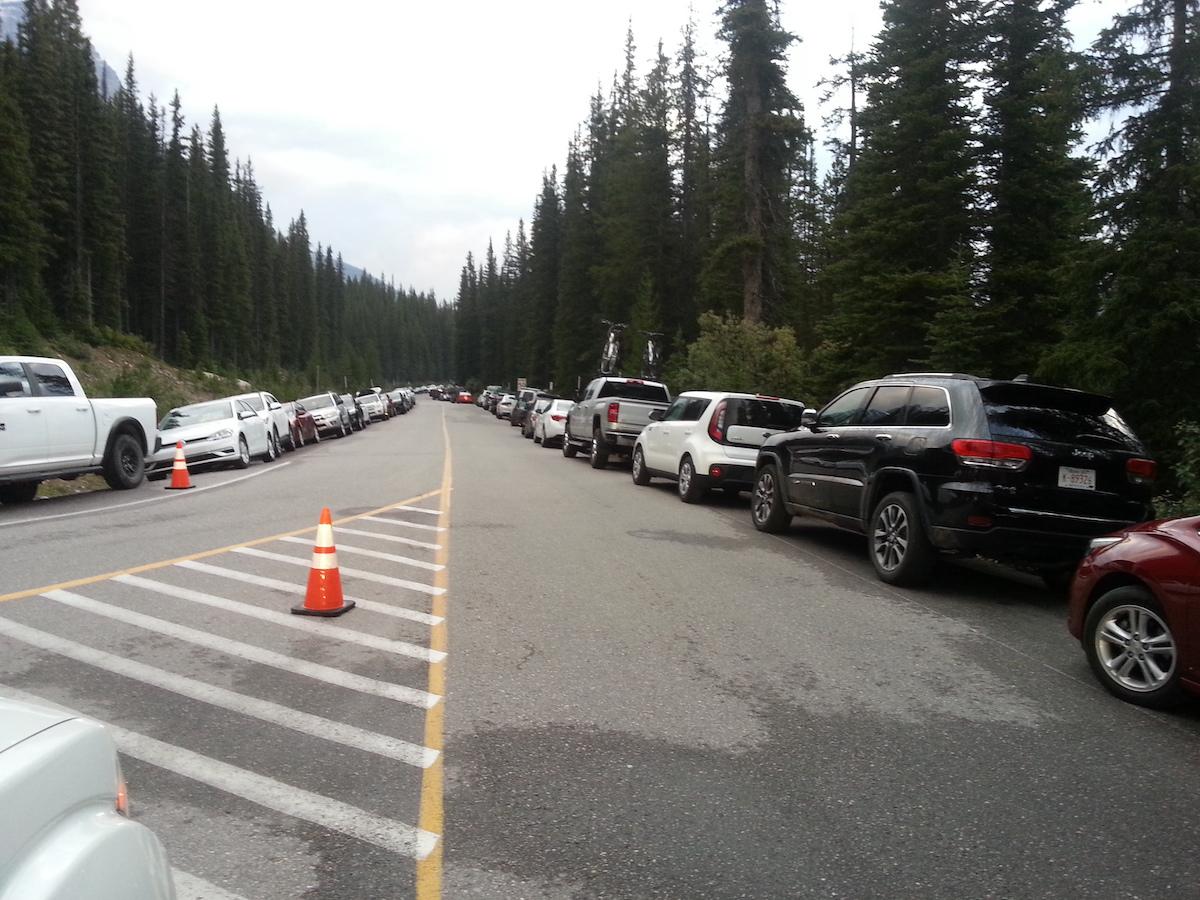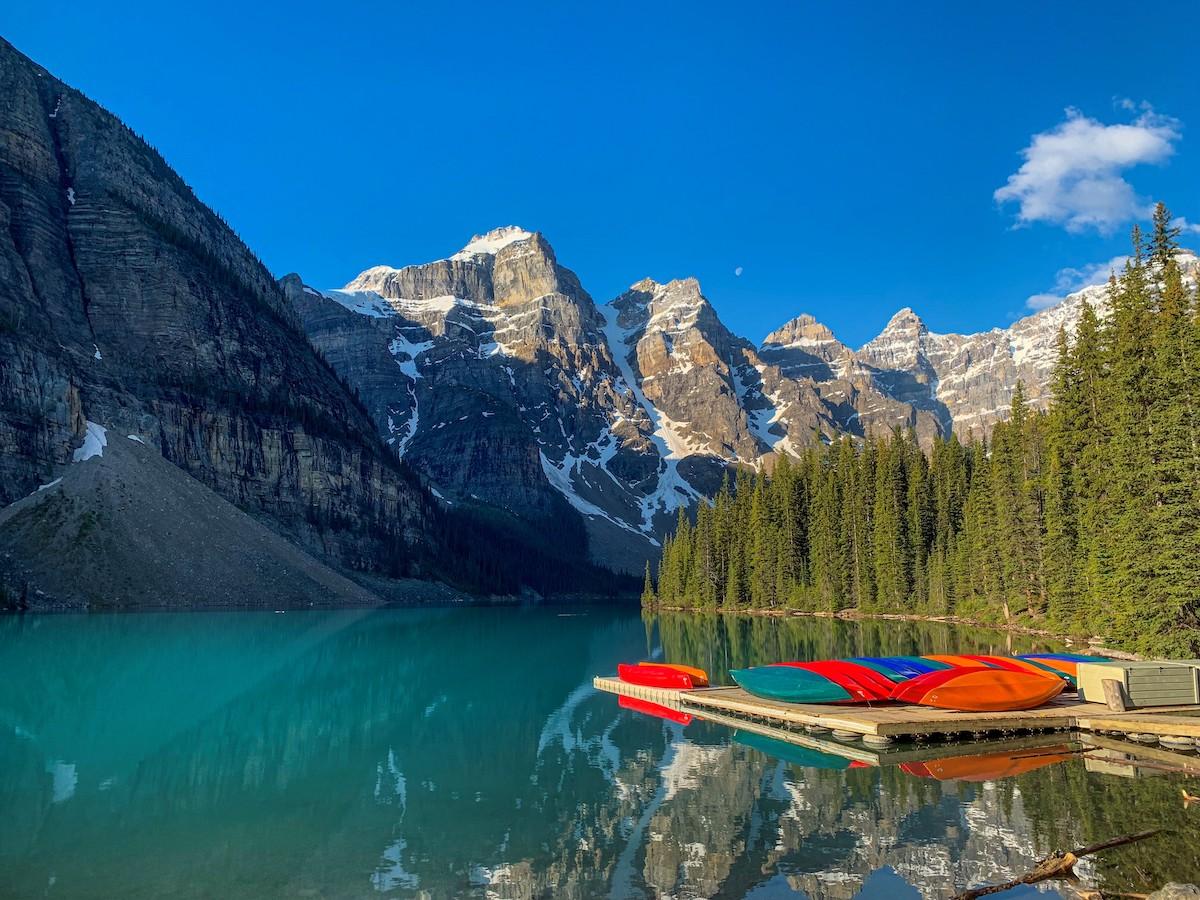
Parking has been a challenge at Moraine Lake in Alberta/Parks Canada, Banff National Park
A move by Parks Canada to ban personal vehicles from an overcrowded road in Banff National Park has sparked pushback from the Alberta government.
Personal vehicles are no longer allowed on Moraine Lake Road near Lake Louise. Only Parks Canada shuttles, Roam Transit, commercial buses and visitors with disabled parking hang tags will be allowed to drive on the 12-kilometre (7.5-mile) road that's open June to mid-October.
Parks Canada made the move because demand to reach Moraine Lake far exceeds available parking, with room for about 900 vehicles a day and up to 5,000 turned away. Traffic flaggers were required 24 hours a day to manage the demand for access last year, and the parking lot remained full nearly 24 hours a day during the summer peak.
Alberta's Forestry, Parks and Tourism minister Todd Loewen released a letter to the govenrment on Twitter. "Parks Canada's decision to block personal vehicles at Moraine Lake means fewer visitors to this important part of the province, less time to climb in the area, and less access to the backcountry," he wrote. "Sunrise and sunset hikes or night photography are near impossible to achieve under this plan, unless people can afford to pay for commercial transport or travel unsafely by foot or by bike in the dark."
Loewen, a member of the United Conservative Party, asked the federal government to reconsider and look at other options. Premier Danielle Smith previously asked Loewen to look into how to keep money turned over to federally run national parks in Alberta to stay in the province.

Moraine Lake is a hotspot/Parks Canada, Banff National Park
Parks Canada believes the decision to block personal vehicles will have three benefits:
• Predictability and improved visitor experience: Shuttle reservations are a guarantee that visitors will get to Moraine Lake and not be turned away.
• Improved wildlife movement in the Fairview wildlife corridor: Moraine Lake Road runs through an important wildlife corridor. Eliminating personal vehicles will reduce stress on animals who use the corridor, particularly in the late evening and early morning.
• Reduced carbon emissions: Eliminating personal vehicles means a reduction of approximately 900 cars per day and 20,000 kilometres (12,400 miles) per day of driving. Based on an average fuel consumption of 9 litres/100 kilometres, this would mean a reduction of more than 4 tonnes of CO2 per day.
Some extra shuttles will be added, and people can also bike (an pedal assist e-bike) Moraine Lake Road.


